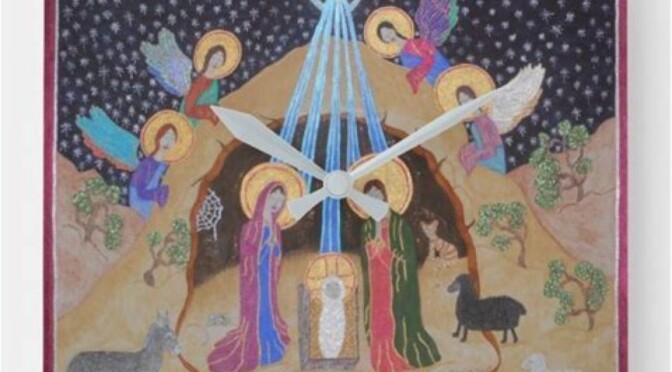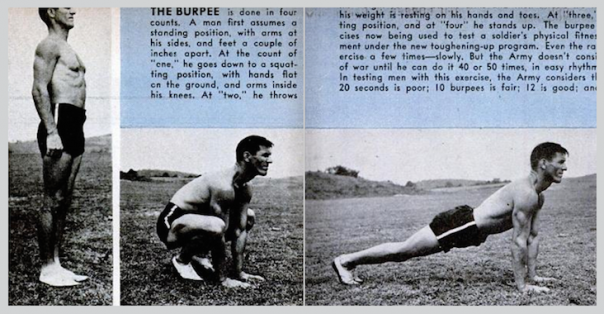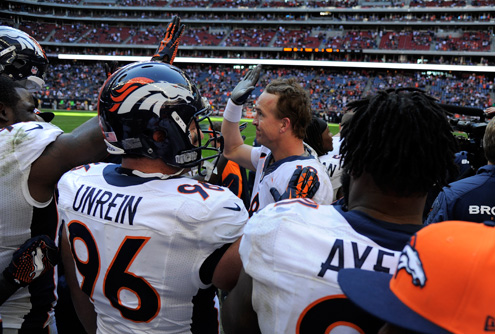*Advent includes the four Sundays before Christmas and is celebrated as the start of the church’s new year by many Christians around the world. Advent wreathes traditionally have four candles. One is lit on the first Sunday. Two are lit on the second…and so on
Caitlin Trussell with Augustana Lutheran Church on December 3, 2023
[sermon begins after two Bible readings; two more readings are at the end of the sermon]
Isaiah 64:1-9
1O that you would tear open the heavens and come down,
so that the mountains would quake at your presence—
2as when fire kindles brushwood
and the fire causes water to boil—
to make your name known to your adversaries,
so that the nations might tremble at your presence!
3When you did awesome deeds that we did not expect,
you came down, the mountains quaked at your presence.
4From ages past no one has heard,
no ear has perceived,
no eye has seen any God besides you,
who works for those who wait for him.
5You meet those who gladly do right,
those who remember you in your ways.
But you were angry, and we sinned;
because you hid yourself we transgressed.
6We have all become like one who is unclean,
and all our righteous deeds are like a filthy cloth.
We all fade like a leaf,
and our iniquities, like the wind, take us away.
7There is no one who calls on your name,
or attempts to take hold of you;
for you have hidden your face from us,
and have delivered us into the hand of our iniquity.
8Yet, O Lord, you are our Father;
we are the clay, and you are our potter;
we are all the work of your hand.
9Do not be exceedingly angry, O Lord,
and do not remember iniquity forever.
Now consider, we are all your people.
Mark 13:24-37
Advent begins with lighting a single candle. Sweet and fragile is its flame. A ritual signifying a beginning, its soft light ironic given Jesus’ intensity with his disciples. And so begins our church year, plunked into the beginning of the end of Mark’s gospel, just before Jesus’ anointing by an unknown woman and his last Passover meal with his friends before the crucifixion – the beginning of Jesus’ end.
Jesus had been teaching at the temple. As he was leaving, one of his followers struck up a conversation with him. They walked to the Mount of Olives, across from the temple, and took a seat. A few more people from Jesus’ inner circle joined them – Peter, James, John, and Andrew.[1] He talked with them about dark and chaotic times just before the events of the cross began.[2] Jesus’ taught them about the upcoming chaos for which the disciples were to keep awake. Much of what Jesus is alluding to seems to be about the cross as the apocalyptic revelation.[3] As one example, he tells time the same way that the crucifixion story does – evening, midnight, cockcrow, or dawn.[4] And, in the very next chapter of Mark, after telling them to stay awake as he prayed in a garden, Jesus caught these very same disciples asleep.[5]
What is a well-intended Jesus follower to make of his teaching? Stay awake even though you won’t be able to? That can’t be right. Or, if it is right, it’s only partly right. It is true that staying awake and being vigilant all the time isn’t humanly possible, so we’ve got that going for us. The events of the cross likely seemed like the end times to the disciples. But, more importantly, the cross promises that the end of all things is also a beginning that we cannot imagine.
God’s imagination, now that’s something worth anticipating and worth waiting for. In Advent, we sing Come Emmanuel. Emmanuel means God with Us. We call on God to come now. Our call is laced with dissatisfaction, disillusionment, and disgust over our current predicament. Yet again, we are caught in sin and systems that seem beyond anyone’s capacity to reimagine. But there are moments, glimmers of possibility, sweet and fragile as an Advent flame.
Last Wednesday, a multifaith service of quiet, music, and candle lighting was held in our Sanctuary. All of us there numbered 113. Included in that attendance were Sunni, Shia, and Ismaili Muslims, a variety of Christians, Palestinians, and several rabbis and a few of their congregants. We were quite a mix of humanity. Few words were spoken. There are things to learn and do differently if there is a next time. But it was really something to watch people of that many different backgrounds light candles and stabilize them in the sand next to each other. Those moments together were a paradox of being at the heart of the struggle and buffered from it. A risk as sweet and fragile as an Advent flame.
Risking an unknown future is part of what it means to call on God’s imagination while singing Come Emmanuel. As the prophet Isaiah calls on God to tear open the heavens and come down, there’s a risk taken alongside the confession of the people’s sin. Inviting God to call us to account is no small thing. We are not left unchanged when God shows up. Protected parts of ourselves that we cradle in mangers of our own making are laid bare in front of a God who knows what we keep tucked away from public view. Layers of self-protection are as dried hay through Advent’s sweet and fragile flame.
Our strains of Come Emmanuel harmonize with the psalmist’s song, “Restore us, O God, let your face shine on us, and we shall be saved.” We could use more than a little saving from ourselves right about now. Collectively we keep missing the mark on the basics of humanity. There are around 2,500 billionaires in the world while somewhere between 1 – 2 billion people live in poverty.[6] We’re all a part of this world. To sing Come Emmanuel, to ask God’s face shine on us, is to illuminate powers and principalities in which we’re accidental or actual participants as the high-tech fibers in paper money shimmer in Advent’s sweet and fragile flame.
Advent is strangely short on time this year. We typically light four Advent candles for the four Sundays before Christmas Eve. This year Christmas Eve is on a Sunday, three weeks from now. The churchy, liturgical way to say this is that Advent 4 is in the morning and Christmas Eve is, well, in the evening. This year, we’ve chosen to have only Christmas Eve services on Sunday the 24th starting at 11 a.m. Here’s your invitation to light that fourth Advent candle at home on Christmas Eve morning. Even if you don’t have anything that resembles an Advent wreath, just light one candle, any color. Before the fullness of the day, before the tracking of Santa’s sleigh, there is a larger more subversive claim in Advent’s sweet and fragile flame.
Those sweet and fragile flames are deeply subversive. Lighting Advent candles is also a ritual of comfort. Advent is a paradox. We sing with longing, Come Emmanuel, while we’re assured of Christ’s presence with us in bread, wine, and baptismal waters, and while we’re assured of Christ’s presence with us in God’s call “into the fellowship of his Son, Jesus Christ our Lord,” as 1 Corinthians describes it. We are not alone. God IS with us. It may just be less like chestnuts roasting on an open fire and more like the light of Advent’s sweet and fragile flame. Come, Emmanuel.
__________________________________________________
[1] Mark 13:1-3
[2] Mark chapters 14 and 15.
[3] See my full sermon on the cross as apocalypse here: November | 2014 | Caitlin Trussell
[4] Mark 14:32-52 (evening in the garden); Mark 14:53-65 (midnight, examined by the high priest); Mark 14:66-72 (cockcrow, denied three times by a friend); Mark 15:1-20 (dawn, condemned to die); Mark 15:33 (Jesus’ crucifixion, death on the cross, and burial: Mark 15:21-47).
[5] Mark 14:32-42 The disciples fall asleep three times in the garden as Jesus is praying.
[6] www.forbes.com/billionaires/ and www.weforum.org/agenda/2021/01/societal-poverty-economics-development-finance-sdgs/
_______________________________________________
Psalm 80:1–4, 7, 17–19
Hear, O Shepherd of Israel, leading Joseph like a flock;
shine forth, you that are enthroned up on the cherubim.
2In the presence of Ephraim, Benjamin and Manasseh,
stir up your strength and come to help us.
3Restore us, O God;
let your face shine upon us, and we shall be saved.
4O Lord God of hosts,
how long will your anger fume when your people pray?
5You have fed them with the bread of tears;
you have given them bowls of tears to drink.
6You have made us the derision of our neighbors,
and our enemies laugh us to scorn.
7Restore us, O God of hosts;
let your face shine upon us, and we shall be saved.
17Let your hand be upon the one at your right hand,
the one you have made so strong for yourself.
18And so will we never turn away from you;
give us life, that we may call upon your name.
19Restore us, O Lord God of hosts;
let your face shine upon us, and we shall be saved.
1 Corinthians 1:3-9 Grace to you and peace from God our Father and the Lord Jesus Christ.
4I give thanks to my God always for you because of the grace of God that has been given you in Christ Jesus, 5for in every way you have been enriched in him, in speech and knowledge of every kind—6just as the testimony of Christ has been strengthened among you—7so that you are not lacking in any spiritual gift as you wait for the revealing of our Lord Jesus Christ. 8He will also strengthen you to the end, so that you may be blameless on the day of our Lord Jesus Christ. 9God is faithful; by him you were called into the fellowship of his Son, Jesus Christ our Lord.

![Advent’s Sweet and Fragile Flame [OR “Come, Emmanuel” May Not Mean What You Think It Means]](https://caitlintrussell.org/wp-content/uploads/2023/12/candle-in-dark-1193478-672x372.jpg)
![Jews, Jesus, and God’s Promises [OR Longing and Wrestling with God]](https://caitlintrussell.org/wp-content/uploads/2023/08/Jacob-Wrestles-with-God-by-Edward-Knippers-672x372.jpg)
![Impatient Patience? Yup, It’s a Thing [Matthew 11:2-11, Luke 1:46b-55, James 5:7-10]](https://caitlintrussell.org/wp-content/uploads/2022/12/St-John-the-Baptist-in-Prison-19th-Century-672x372.jpeg)

![Thievery, Shadows and Light [OR Why Matthew’s Year is Good News] Matthew 24:36-44, Isaiah 2:1-5, Psalm 122, Romans 13:8-14](https://caitlintrussell.org/wp-content/uploads/2016/11/NASA.JPL_.light-and-shadow-exhibit.sermon-Caitlin-Trussell-672x372.jpg)




